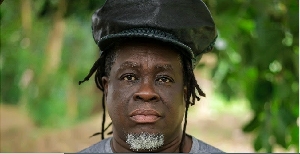On 7 August 1826, exactly 194 years ago, the Katamanso War (The battle of Dodowa) began. The war was fought between the Asantes and the people of Accra; Dangme people of Prampram, Ningo and Ada after the people of Accra (AKRA) had been part of an alliance of local chiefs who had aided the British, Denkyira and Fantis in resisting an Asante attack on Cape Coast in July 1824.
The people of Accra had been part of an alliance of local chiefs who had aided the British, Denkyira and Fantis in resisting an Ashanti advance on Cape Coast in July 1824. The Asantehene Nana Osei Yaw Akoto amassed an army of 40,000 and vowed to punish the people of Accra in the aftermath of this defeat.
An alliance of British, along with Ga-Adangbe, Fanti, Denkyira, Akwamu and Akyems faced the Asante at Katamanso, in a battle that ended Asante suzerainty over many southern and coastal nations and contributed to the rise of British power and prestige on the coast.
Cause of the war:
The valiant Accra people went to help the Fantes and the Denkyiras led by the Governor, in the Cape Coast Castle, to force King Osei Yaw and the Asante army to beat a retreat from their attack on the Fantes and the Cape Coast Castle, in July 1824. Settled by the role of the Accra people in scuttling his plans to capture the Cape Coast Castle, King Osei Yaw instructed his army, according to Rev. Carl Christian Reindorf in his book History of the Gold coast and Asante, based on traditions and Historical facts, from 1500 to 1860 he said “Let us. March back to Kumasi, and I will come upon them”. King Osei Yaw vowed to teach the Accra people a lesson, and declared that he would pursue the “Akras” no matter the cost.
Result of the battle of Katamanso:
The battle of Dodowa between the people of Accra and the Asantes began fiercely on the 7 of August 1826 at Katamansu near Dodowa. Carl Reindorf recounts that “The combined forces of Prampram, Ningo, Ada and the riverside people just at the same time followed up the attack, and the position of the Asantes’ became critical.
King Osei Yaw, realising the danger, marched in defence with his body-guard, stood upon the royal stool, and drew the war-sword waving it between heaven and earth, as kings usually do in war, but the rebound was too strong, and he was wounded. There was a severe conflict between the king’s bodyguard and the forces under Opoku Fredefrede, in which the Asantes were beaten and greatly weakened; and on account of the defeat the Asante General afterwards poisoned himself and died at Asafo.
Dshani Afutu and Ante from Teshi are said to have shouted the religious war cry of Awo awo awo!’ to which every warrior of the whole column responded as one man: “Awo, Agabai bereku tso!” A loud voice was heard in the enemy line. “Edom agu o!” The Battle is lost” Then all the baggage was hastily thrown on a heap as high as a mountain, and the Asante army took to flight, after fighting and holding their position for nine hours, from 6 a.m. — 3 p.m. Prisoners were made, and then the baggage and camp were taken”.
“King Osei Yaw escaped with a large number of his bodyguards through the right wing of his army, the Accra people were left victorious on the battlefield”.
Effects of the war:
Trading activities transpired smoothly on the coast with less fear of invasion as it used to be the case before the war ensued. The war also led to the unity of Ga-Adangme. The name Accra now became famous; their influence spread far and wide, and everyone looked up to them. Their former enemies, Fantes, Akyems, Akwamus, and Akuapems bowed down to them, and their prestige was acknowledged even at Asante and Dahome. They maintained lively traffic with foreign countries, and strangers came down to the Coast for commercial purposes.
General News of Saturday, 29 August 2020
Source: ghanaianmuseum.com













